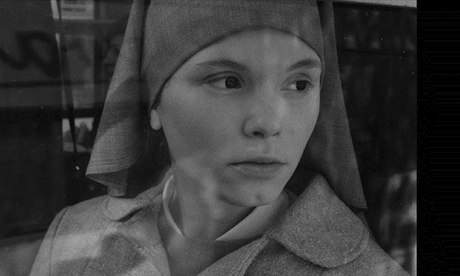Ida
An understated gem of a film set in postwar Poland.
Overview
The Polish director Pawel Pawlikowski brings us an intimate post-war period drama set in his home country. Shot in black and white it's an understated gem of a film. Agata Trzebuchowska plays Anna, a novice nun preparing to take her vows in the convent where she was left as a baby. Her superior encourages her to make contact with her aunt, her only surviving relative, before taking the final step. Her aunt, Wanda Gruz, played by Agata Kulesza is quite affronted when Anna turns up on her doorstep.
The chain-smoking, heavy drinker who lives on her own was once a state prosecutor for the communist state but was demoted and now spends her days as a lowly magistrate. Wanda tells Anna her real name is Ida and her parents were, in fact, Jewish. When Anna asks what happened to her parents, Wanda knows they were killed but not much more.
Films about Jews being hidden from the authorities by plucky individuals are nothing new but what about people who at first protected them and then had second thoughts? That's not your everyday storyline, but it's exactly what happened to Anna's parents. Wanda volunteers to take Ida to the village where the couple were living during the war to get the full story. It's a trip she's been dreading making for years because of the burden of guilt she feels for not having protected her sister.
Along the way they pick up a hitch-hiker, a jazz saxophonist named Lis (Dawid Ogrodnik). Obviously smitten, he introduces Anna to the music of John Coltrane and to late-night clubs. She succumbs to the first flutters of attraction. But will it be enough to make her give up on her spiritual journey?
Ida is a drama that explores both the wider issues of Polish catholicism and antisemitism as well as the personal impact on the families of Jews who were killed during the war. Wanda's character is a vivacious and glamorous woman and yet she's plagued by depression. The downward spiral portrayed by Agata Kulesza is both fascinating and at times difficult to watch. Agata Trzebuchowska is utterly mesmerising as Anna. Used to the quiet life of the convent she speaks sparingly and conveys much through her facial expressions.
Perhaps the most remarkable thing about the film is its incredible cinematography. Otherwise everyday scenes such as the pair travelling through the wintry countryside or Anna and other novice nuns bathing in large tubs take on a poetic beauty that is at times breathtaking. But Ida is more than just an aesthetic triumph, it's a film which exposes a painful chapter in Polish history with grace and humility.





